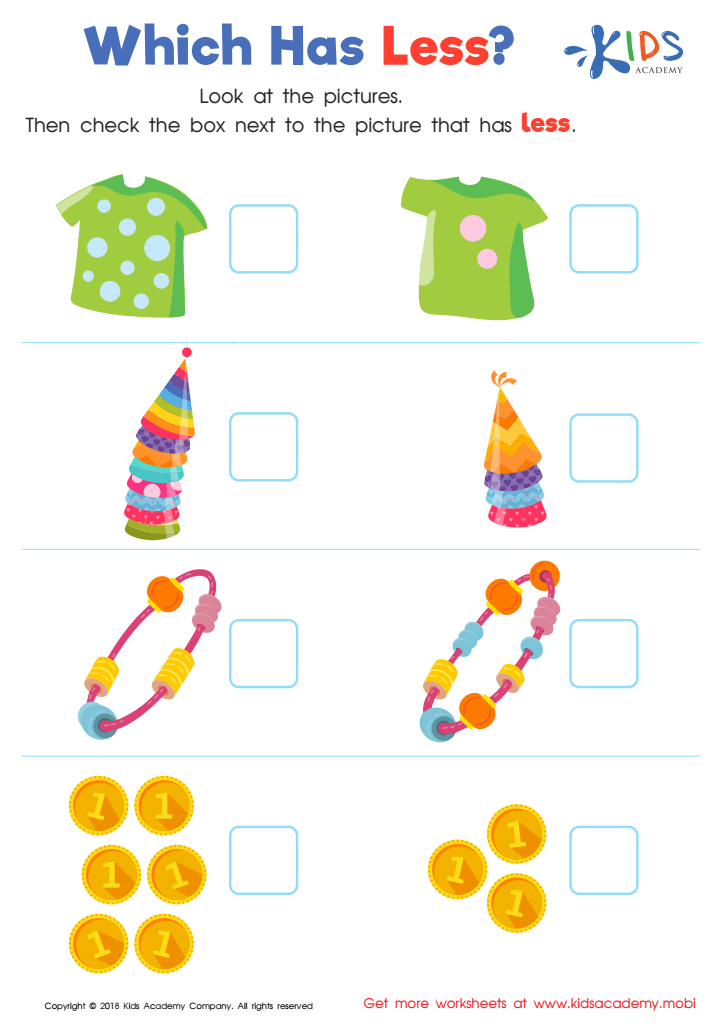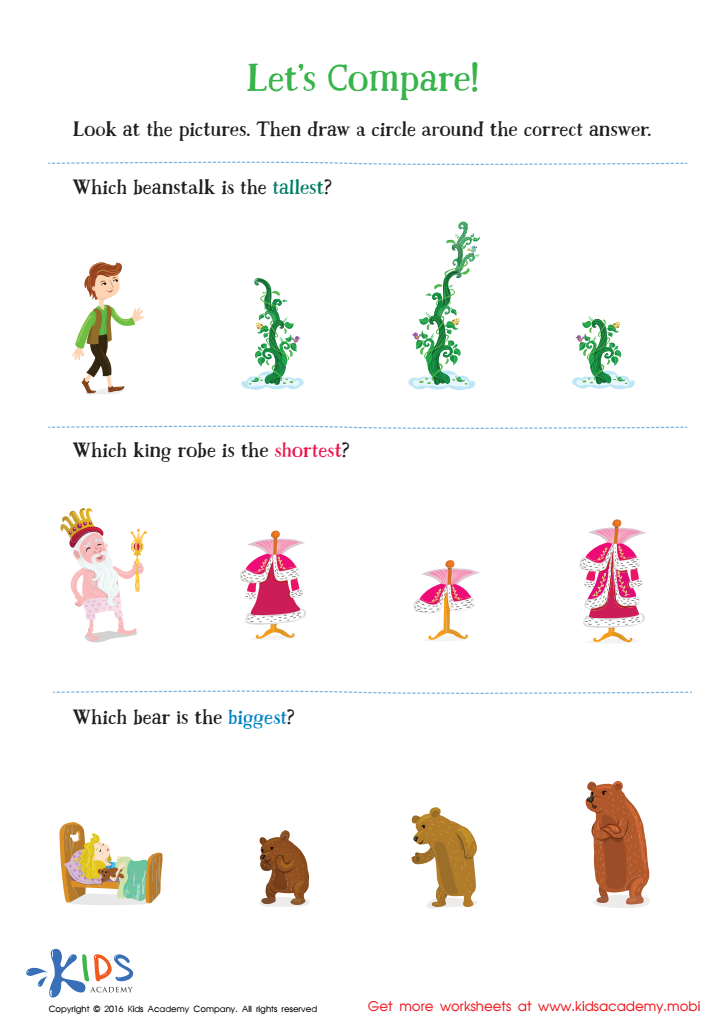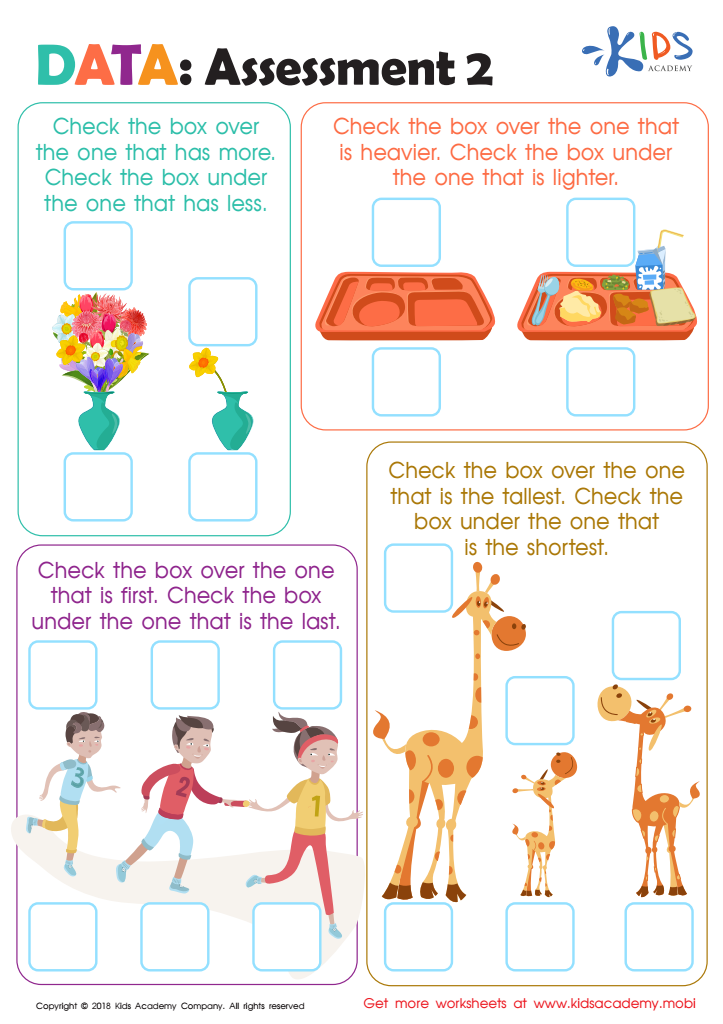Basic Math Skills Comparison Worksheets for 5-Year-Olds
3 filtered results
-
From - To
Help your 5-year-old enhance their basic math skills with our printable comparison worksheets! Designed to be engaging and educational, these worksheets from Kids Academy focus on comparing numbers, objects, sizes, and quantities. Each worksheet uses fun themes and colorful illustrations to capture your child's interest while teaching concepts such as greater than, less than, and equal to. Ideal for kindergarten students, these resources provide a solid foundation in math, boosting their confidence and preparing them for future academic success. Try our Basic Math Skills Comparison Worksheets today and watch your child's math abilities grow!


Which Has Less? Worksheet


Fairy Tale Worksheet: Let's Compare


Data: Assessment 2 Worksheet
Parents and teachers should prioritize basic math skills comparison for 5-year-olds because early assessment and intervention are crucial for a child's cognitive development and future academic success. This is the age when fundamental concepts like counting, basic addition and subtraction, and shape recognition form the foundation for more advanced mathematical thinking.
Comparing basic math skills helps to identify a child’s strengths and weaknesses early on. If a child struggles, targeted support can be provided to prevent potential learning gaps from widening. Without early intervention, these gaps can affect a child’s confidence and interest in math, leading to prolonged difficulties and aversion to subjects that are vital for future educational and career opportunities.
Early assessment also allows for differentiated teaching strategies that cater to individual learning styles, ensuring that each child can advance at their own pace. For children who display advanced skills, such comparisons can lead to enrichment opportunities that challenge and stimulate their intellect.
Involving parents in math skill comparisons fosters a collaborative environment where teachers and parents work together to support the child's learning journey. This communal approach ensures consistency between school and home, reinforcing concepts and making learning more effective and enjoyable for the child.
Overall, understanding and addressing basic math skills at the age of 5 is instrumental in shaping a child’s positive attitude towards learning and overall academic trajectory.
 Assign to My Students
Assign to My Students




















